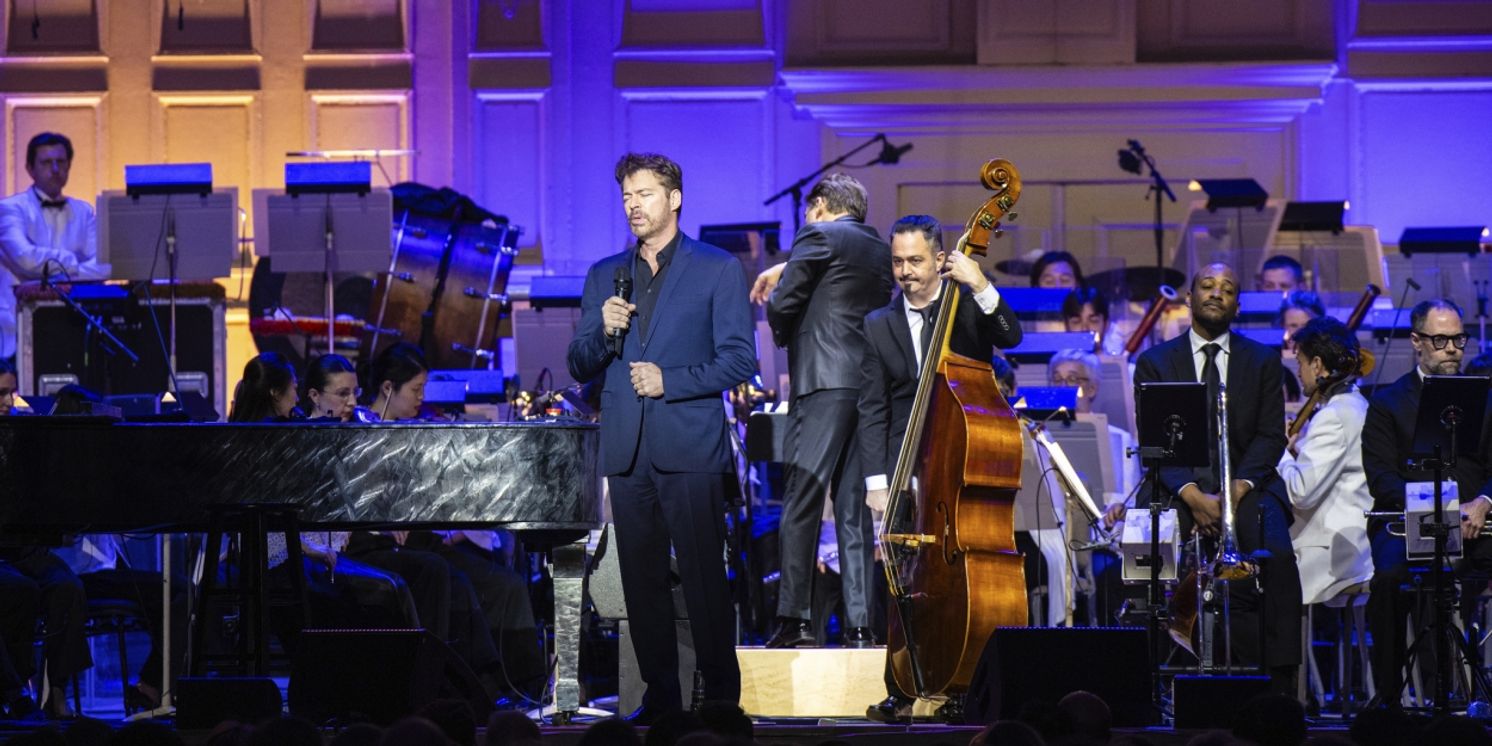Review: Opening Night at Pops Showcases George Gershwin, Harry Connick, Jr., and More
Boston Pops Spring Season continues through June 8 at Symphony Hall

There were three great pianists on the program when the Boston Pops recently opened its 138th season at Symphony Hall.
George Gershwin was well represented in the first half, which conductor Keith Lockhart and the Pops began with the overture to Gershwin’s “Nice Work if You Can Get It” before segueing into a medley that included “Someone to Watch Over Me” and galloping to a conclusion with a percussion-enhanced “’S Wonderful.” Gershwin’s piano suite “Three Preludes” was next, followed by his “Fascinating Rhythm,” which had the Pops pulling out all the stops in building the popular song’s marvelously brisk pace.
Gershwin will be heard often this spring season as the Pops celebrates the centenary of “Rhapsody in Blue.” And celebrate that classical- and jazz-influenced masterpiece for solo piano and jazz band they did, welcoming New England Conservatory-, Harvard-, and Juilliard-trained American pianist and composer Charlie Albright to the stage to perform the 1924 composition originally commissioned by bandleader Paul Whiteman.
Albright wasted no time demonstrating the talent that made him a onetime wunderkind, delivering a fresh, vigorous, and imaginative take on the Gershwin classic that was the stand-out opening-night selection. As his richly earned encore, Albright all but attacked the keyboard – while leaving both feet planted on the floor – for a rousing rendition of “Great Balls of Fire,” a 1957 hit for Jerry Lee Lewis.
The evening’s headliner, Harry Connick, Jr., opened the second half of the program at the piano with the Brazilian song “Tico Tico No Fubá,” after which the singer, pianist, and composer playfully chided Lockhart for providing him with a hard act to follow and riffed humorously about encountering the younger Albright backstage.
Connick’s set was heavy on standards by songwriters from Kurt Weill, Dorothy Fields and Jerome Kern, Isham Jones and Gus Kahn to Cole Porter, all well suited to his voice, including “It Had to Be You,” “The Way You Look Tonight,” “September Song,” “Lost in the Stars,” “I Love Paris,” and “I Concentrate on You,” which the performer described as “probably the best love song ever written.”
A Louisiana native, Connick is well known for his New Orleans sound. Accompanied by Gerard Weldon on tenor and soprano saxophones, Geoff Burke on alto and baritone saxophones and on flute, trombonist Dion Tucker, trumpeter Mark Braud, keyboardist Andrew Fisher, Neal Caine on bass, and drummer Arthur Latin, he brought that mix of jazz and blues to Symphony Hall.
With limited or no involvement by the Pops, the often-on-the-piano Connick and his first-rate musicians brought their own swing to “Doctor Jazz,” a Joe “King” Oliver song made famous by Jelly Roll Morton, Connick’s own composition “Come by Me,” and the finale, “Bourbon Street Parade.”
While Lockhart and the Pops were in their customary fine form, and Albright lent his piano mastery to the first half, Connick’s set, while not without its good moments, failed to rise to the occasion of opening night. Indeed, Connick seemed to be phoning in a good deal of what was a surprisingly lackluster performance. Perhaps he wasn’t kidding Lockhart after all when he complained about his placement in the program.
Photo caption: Harry Connick, Jr., in concert with the Boston Pops at Symphony Hall on Friday, May 10, 2024. Photo by Robert Torres.
Reader Reviews
Videos

